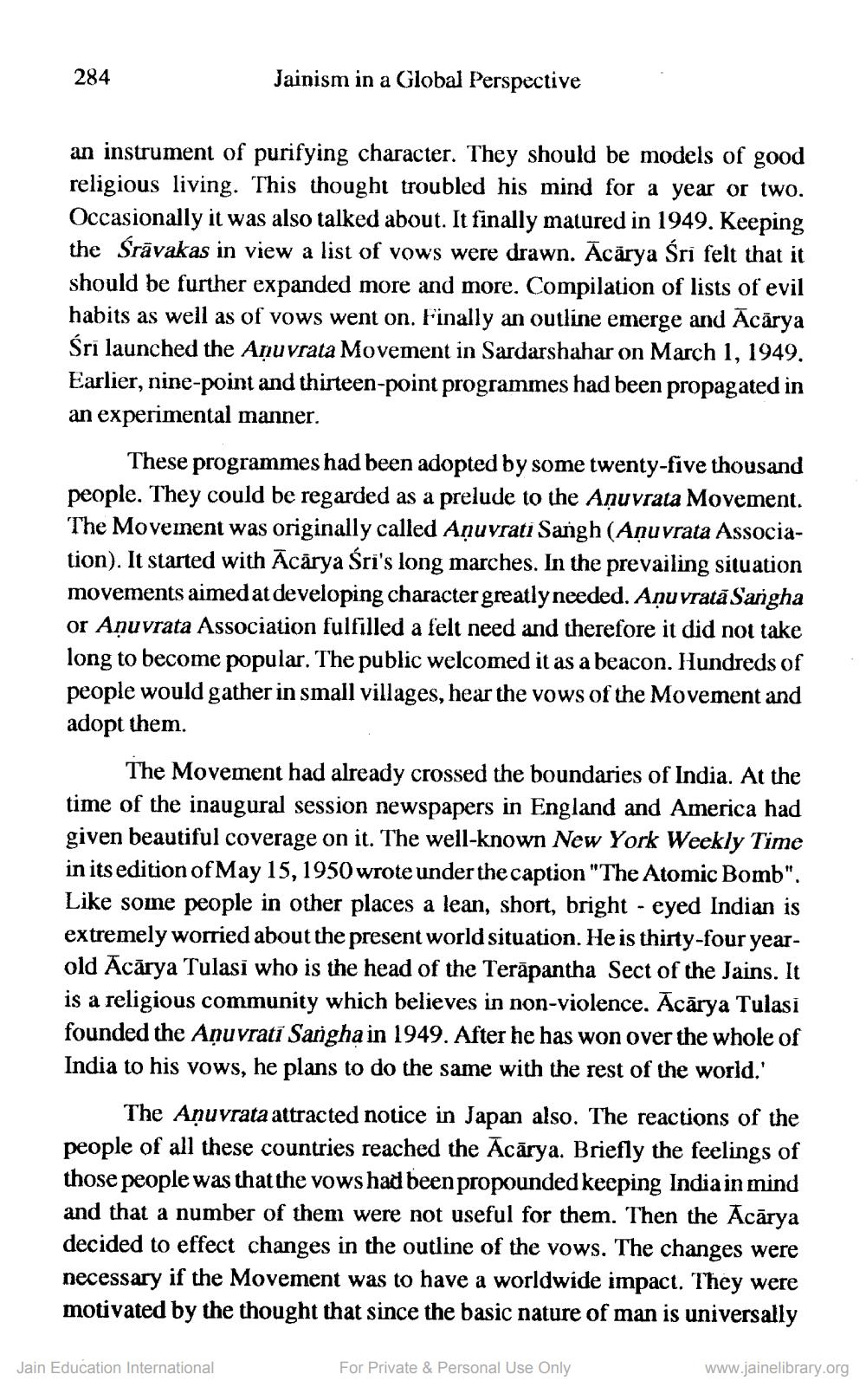________________
284
Jainism in a Global Perspective
an instrument of purifying character. They should be models of good religious living. This thought troubled his mind for a year or two. Occasionally it was also talked about. It finally matured in 1949. Keeping the Śrāvakas in view a list of vows were drawn. Ācārya Śri felt that it should be further expanded more and more. Compilation of lists of evil habits as well as of vows went on. Finally an outline emerge and Ācārya Sri launched the Asuvrata Movement in Sardarshahar on March 1, 1949. Earlier, nine-point and thirteen-point programmes had been propagated in an experimental manner.
These programmes had been adopted by some twenty-five thousand people. They could be regarded as a prelude to the Aņuvrata Movement. The Movement was originally called Aņuvrati Sangh (Anuvrata Association). It started with Ācārya Sri's long marches. In the prevailing situation movements aimed at developing character greatly needed. Aņuvrată Sangha or Aņuvrata Association fulfilled a felt need and therefore it did not take long to become popular. The public welcomed it as a beacon. Hundreds of people would gather in small villages, hear the vows of the Movement and adopt them.
The Movement had already crossed the boundaries of India. At the time of the inaugural session newspapers in England and America had given beautiful coverage on it. The well-known New York Weekly Time in its edition of May 15, 1950 wrote under the caption "The Atomic Bomb". Like some people in other places a lean, short, bright - eyed Indian is extremely worried about the present world situation. He is thirty-four yearold Ācārya Tulasi who is the head of the Terapantha Sect of the Jains. It is a religious community which believes in non-violence. Ācārya Tulasi founded the Anuvrati Sangha in 1949. After he has won over the whole of India to his vows, he plans to do the same with the rest of the world.'
The Aņuvrata attracted notice in Japan also. The reactions of the people of all these countries reached the Ācārya. Briefly the feelings of those people was that the vows had been propounded keeping India in mind and that a number of them were not useful for them. Then the Acārya decided to effect changes in the outline of the vows. The changes were necessary if the Movement was to have a worldwide impact. They were motivated by the thought that since the basic nature of man is universally
Jain Education International
For Private & Personal Use Only
www.jainelibrary.org




